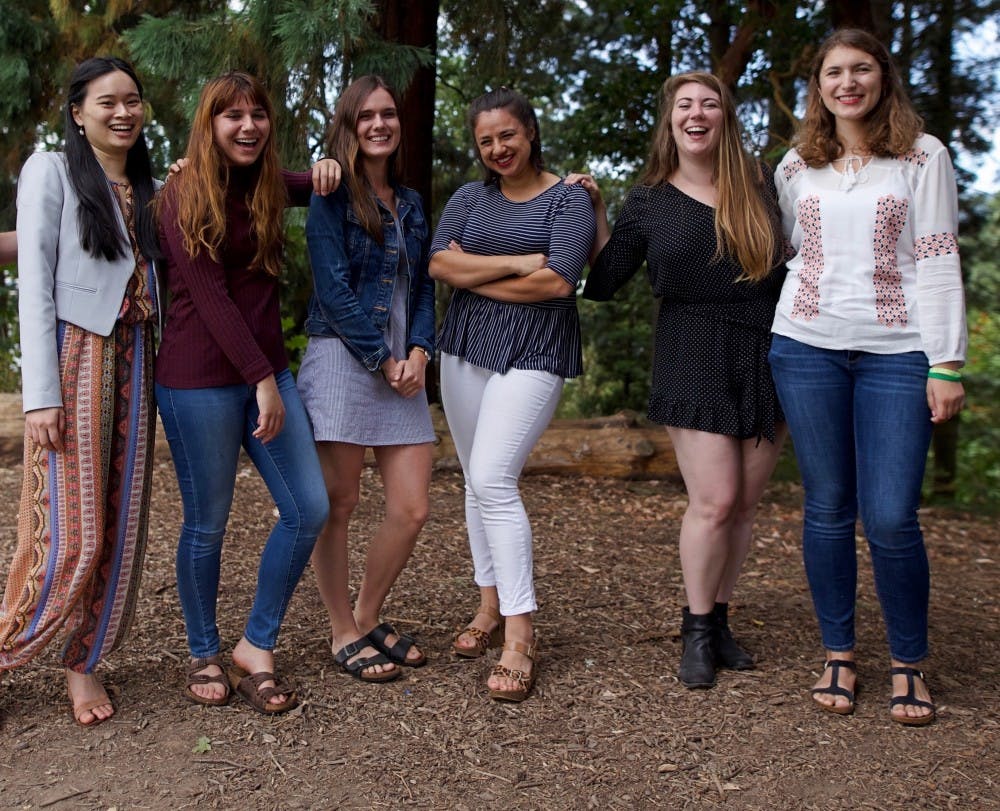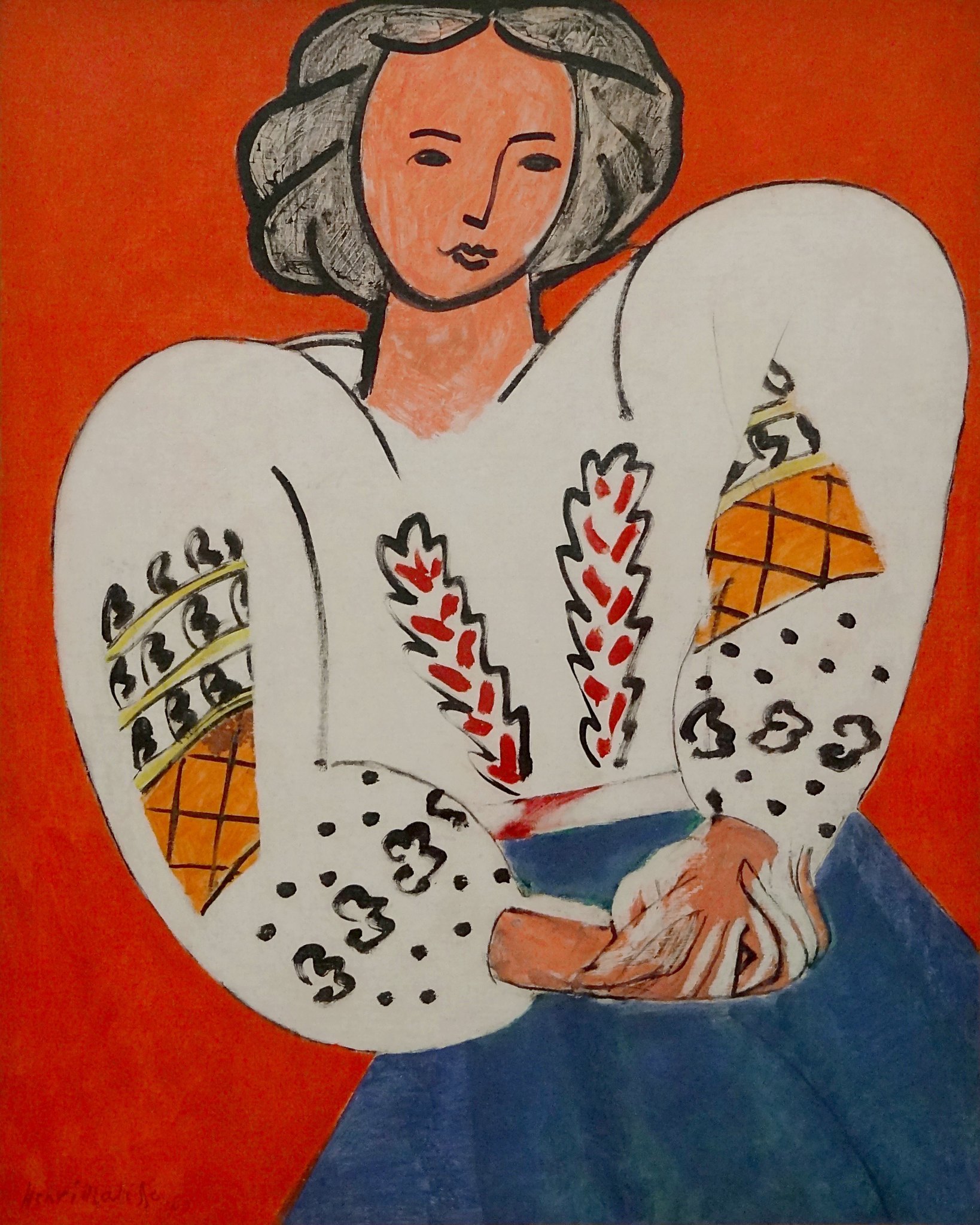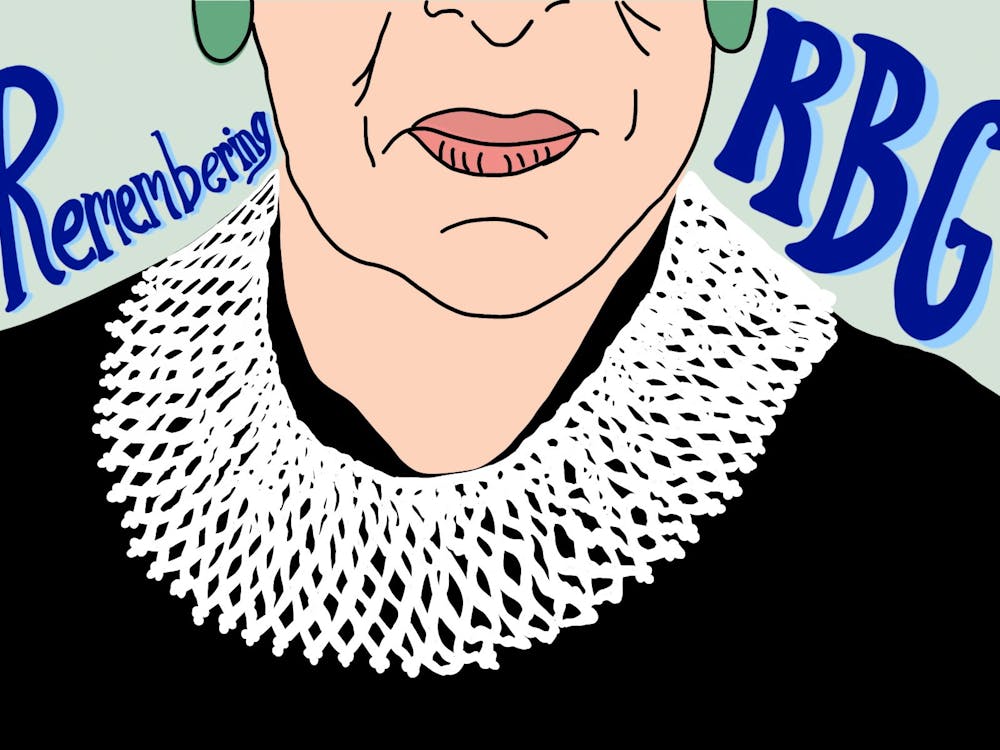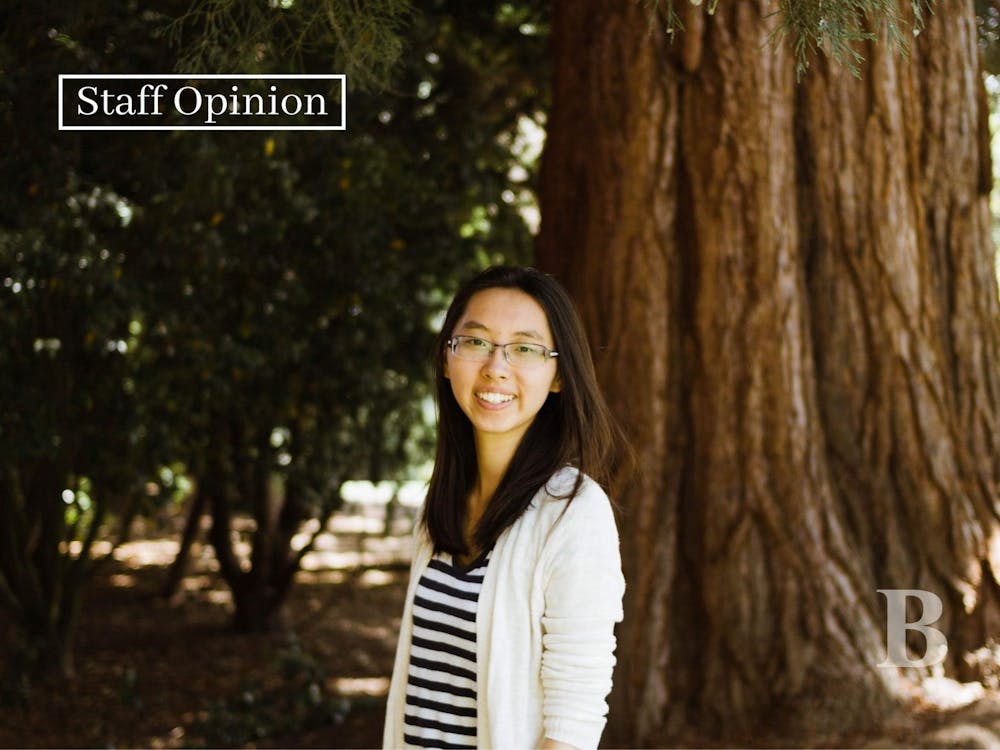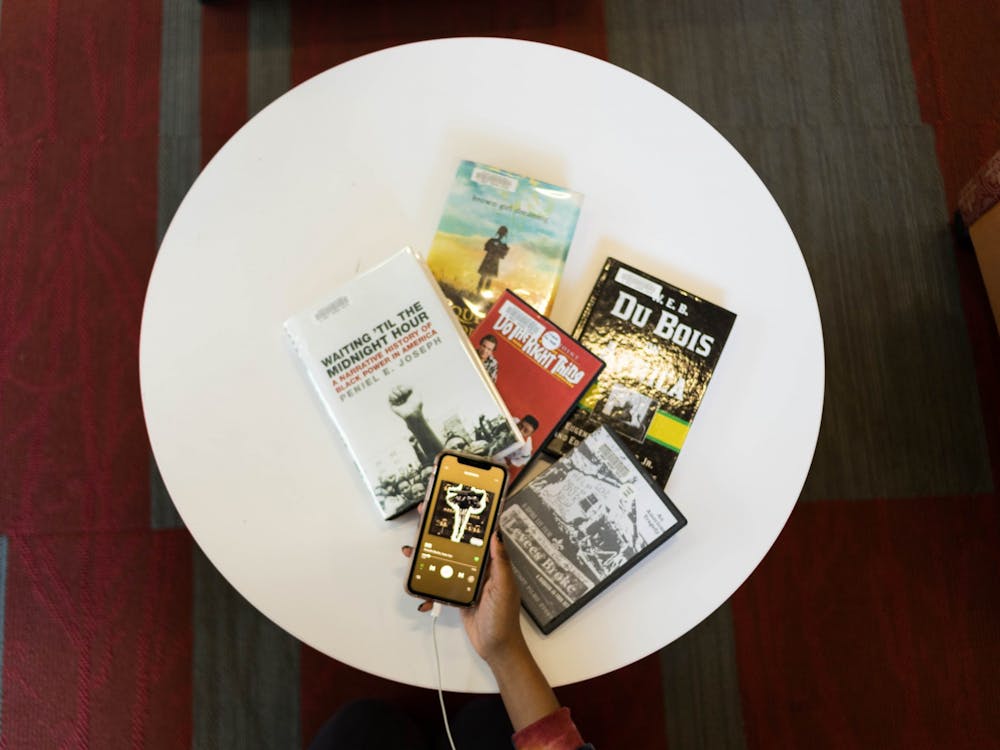In honor of International Women’s Day, March 8, each of our editors wrote about women they admire. Our picks include celebrated authors, writers, activists and filmmakers. The women we selected to write about are outstanding not only in their work, but also in the way they live their lives. While we had to limit ourselves to selecting a few women, we recognize millions of women deserve recognition for their contributions every day.
Olivia Sanchez, News and Managing Editor (Prisca Dorcas, Roxane Gay, Malia Obama, Munroe Bergdorf):
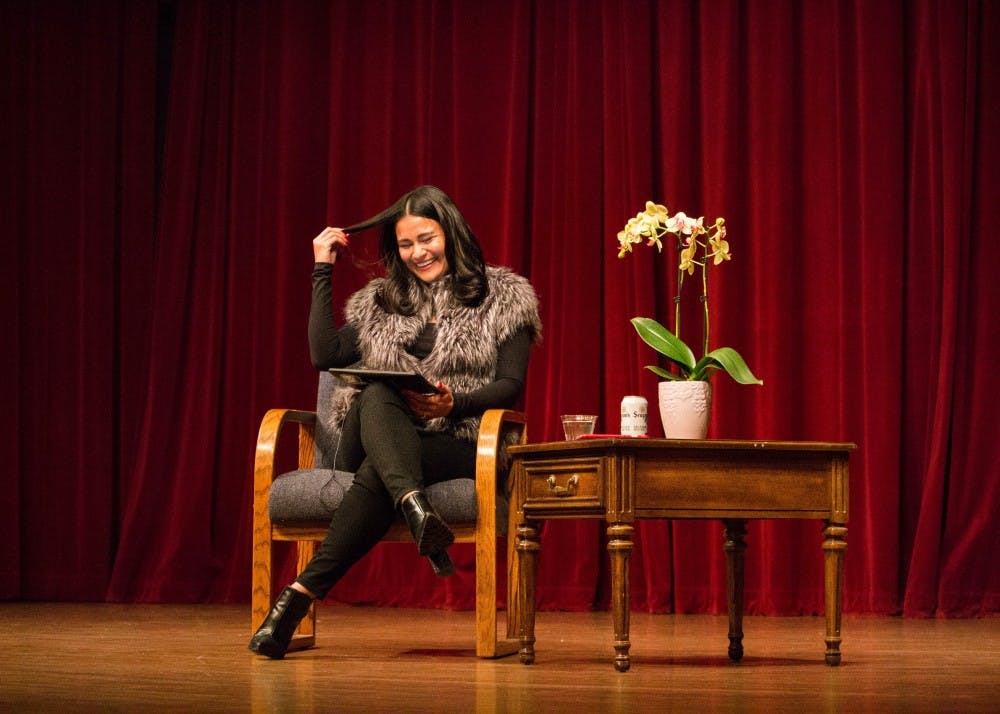
Last Friday night, Prisca Dorcas said everything I needed to hear. The 32-year-old founder of online community Latina Rebels is radically challenging narratives of systemic oppression in everything she does. She spoke to the UP community during Diversity Dialogues, but I felt like she and I were sitting alone, chatting about our religious, immigrant families, dating and growing up as brown girls in a very white world. Our experiences are quite different, but they are very much the same. I was ignited by her unapologetically honest storytelling, and by her ability to maintain fierce, forgiving love for her family while she spends her life unlearning. She said she writes to heal, and I understand that. She said she hopes to not be doing this (writing, healing) forever, and that maybe someday she will be “a lady who lunches” and wears khakis and Keds. She said, “Some people say you have to build bridges with your oppressors, but I’m not one of those people. I burn those bridges down, mix las cenizas (the ashes) with essential oils and make a face mask.”
Roxane Gay is an award-winning writer on many accounts and has most recently rocked my world with “Hunger: A Memoir of (My) Body.” I devoured it over winter break and haven’t been able to stop thinking of it since. She didn’t write what you probably think she did. It was neither a success story nor a pity party. It was a chilling account of brutal sexual violence, and an honest account of her experience of her body. She writes about hiding in her body and about taking up space and standards of beauty in a way that has challenged and empowered me. Most importantly, maybe, is that she opened up this conversation on bodies that are not typically celebrated, but deserve to be.
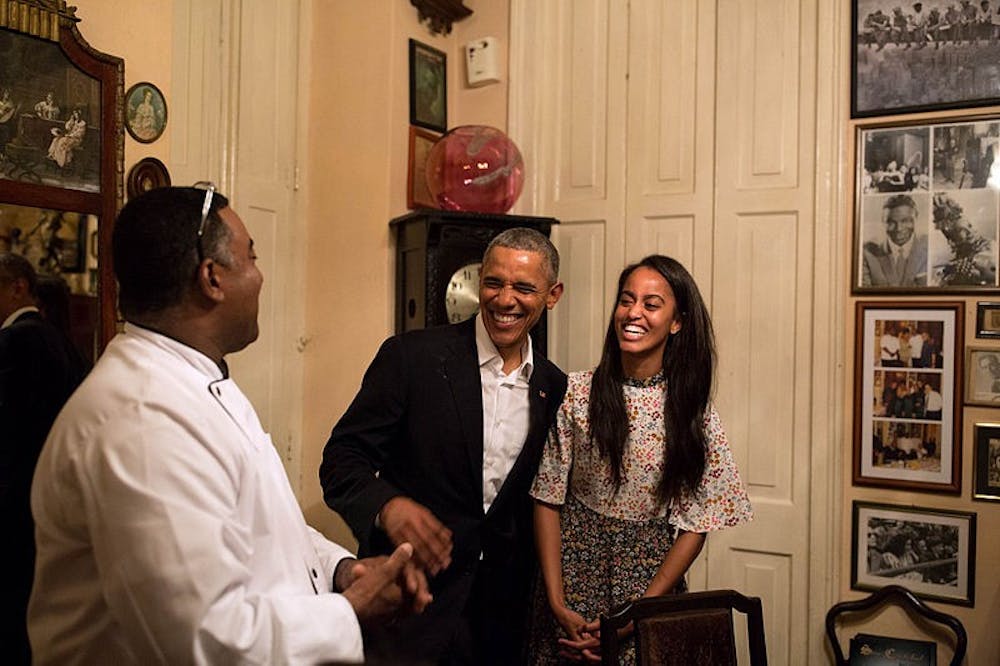
Malia Obama is a normal girl in far more ways than she’s not. And the fact that she’s out there living her life — kissing boys at football games, going to music festivals, wearing short shorts — is revolutionary. The pressure on Malia to be perfect is probably greater than any of us can imagine. She’s not just the daughter of a president, she is the daughter of the first black president. She is a black woman in America. That’s hard enough, but add swarms of secret service, friends she can’t trust to keep her off Snapchat and the average security threat that comes with being the daughter of a former president, and you realize that Malia is a damn superhero for just living her life with no apologies.
Last fall, Munroe Bergdorf was dropped as L’Oreal UK’s first transgender model after she spoke out against systemic racism on Facebook in the wake of the white supremacist march in Charlottesville, Virginia. Bergdorf, a British model and social activist, continues to speak out against issues of inequality pertaining to race and gender, most recently in regards to the lack of media attention to #MeToo stories of trans+ women and gender nonconforming people. Bergdorf fiercely represents and empowers the LGBTQ+ community on a daily basis, and I’m proud to call her a role model.
Hannah Sievert, Living Editor (Chimamanda Ngozi Adichie, Lindy West):
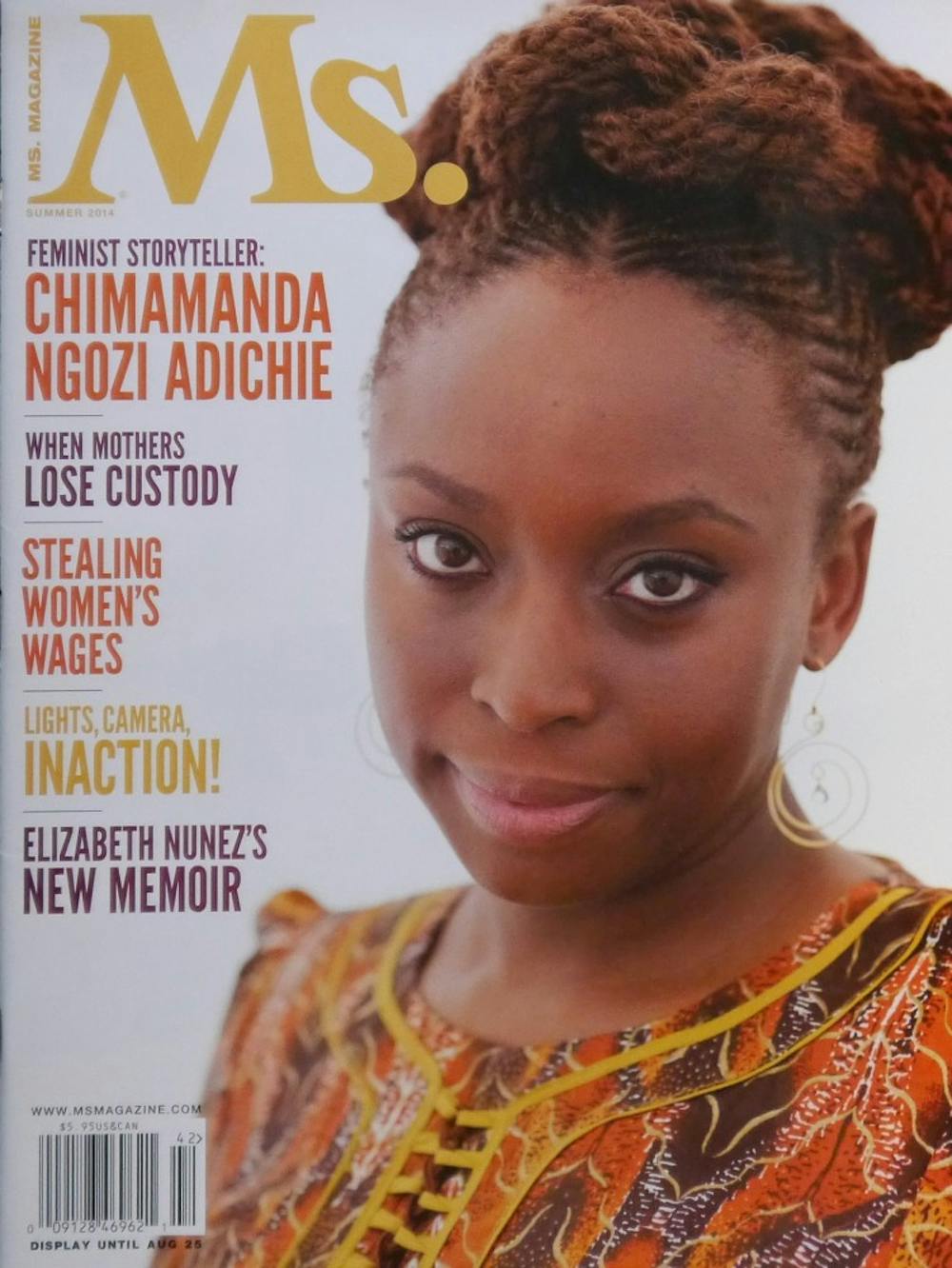
Chimamanda Ngozi Adichie’s words appear in TED talks and on the best-selling shelf in Powell’s. Her 2012 TED Talk “We Should All Be Feminists” has been viewed over four million times, and Beyoncé used an excerpt of it in her song “Flawless.” Adichie is the author of “Purple Hibiscus,” “Half of a Yellow Sun,” “The Thing Around Your Neck,” and most famously, “Americanah,” the winner of the 2013 National Book Critics Circle Fiction award. In her novels and TED talks, Adichie makes the truth about the need for feminism and the hardships of immigrants clear and simple. Adichie inspires me to be a better feminist and woman.
I admire Lindy West because she writes the way I hope to someday write: with no apologies. The author of “Shrill” and a columnist for The New York Times, West’s honest writing causes me to pause and reflect more than any other writer. Some of my personal favorites are her take on why “Complicit” was Dictionary.com’s word of the year, why we need to panic and vote, why real men might get made fun of and her explanation on an episode of “This American Life” of how she came out as “fat” and why society needs to change its perception of fatness.
Erin Bothwell, Community Engagement and Opinions Editor (Jenny Lawson, Mindy Kaling, Oprah):
I first discovered Jenny Lawson when I bought her second book, ‘Furiously Happy: A Funny Book About Horrible Things’ last September. Lawson is weird in the best possible way. She makes the rest of us weirdos realize we’re not alone — there are more of us out there. She brings humor to subjects like severe depression, anxiety and other mental and physical health issues we often don’t talk about. Issues that can make us feel alienated. She writes a blog, has gifted me with an appreciation for taxidermy and her words have probably led to more life realizations than I can begin to count. Her writing is a sanctuary. To quote Caitlin Moran, “I adore her.”
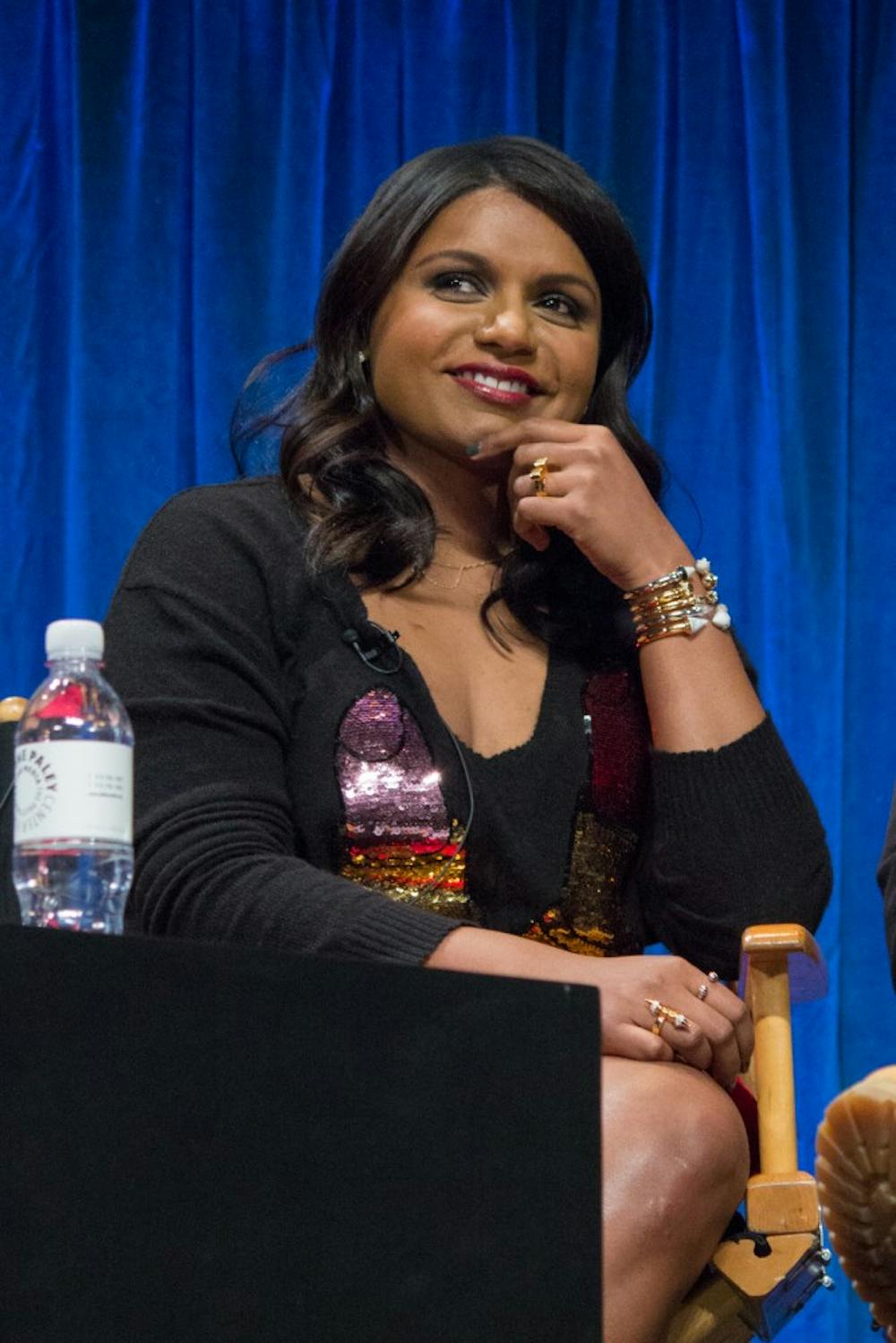
I relate to quintuple threat Mindy Kaling (writer, director, actress, producer, show creator) since I more or less feel like I know her personally after reading her books and watching her shows. Kaling was the first Indian-American women I ever saw have her own TV show, which has always struck me as a BFD (since when I look in the mirror, an Asian face stares back at me). She writes about loneliness, her immigrant parents, body image and working as a woman in a male-dominated industry and includes her experiences in her film work. She’s not afraid to make fun of herself or take risks in her career, and she’s cool enough to not get upset when Oprah accidentally told the world she was pregnant. Also, she’s friends with OPRAH.
Oprah needs no explanation for why she’s included here.
Kyle Garcia, Sport Editor (Doris Burke, Rigoberta Menchu):
Doris Burke is not only one of the best female figures in sports media, she is one of the best reporters/analysts period. Burke provides more insight into what’s happening in an NBA game than the majority of announcers and reporters in sports media, and she does so with a swagger and confidence very few can match. She is the first woman ESPN has ever promoted to be a full-time NBA analyst, the first woman to ever commentate a Knicks game as well as a Big East men’s basketball game and was even selected to enter the Basketball Hall of Fame as the 2018 Curt Gowdy Media Award winner. Even Drake proclaimed his love for Burke by wearing a sweatshirt that said Woman Crush Everyday with a picture of her face on it. If Drake’s wearing a shirt with your face on it, then you’re probably doing something right.
Rigoberta Menchú is a Ki’che’ woman from Guatemala who lived during the Guatemalan Civil War. She has fought ever since she was a little girl for the rights of indigenous people living in Guatemala, facing many hardships such as seeing multiple family members killed and tortured by the Guatemalan government as well as being exiled to Mexico. Despite this, she continue to, champion the indigenous people of Guatemala. The former Nobel Peace Prize winner continues her fight to this day. You can learn more about her plight in her biography “I, Rigoberta Menchú.”
Annika Gordon, Multimedia Editor (Misty Copeland, Gabriela Castaneda):
When four-year-old me started doing ballet, she did not realize seventeen-year-old me was going to end up with achy knees and bad self-image. She did not realize that she would one day walk into a room full of dancers and walk out feeling terrible about having the biggest boobs. In retrospect, I should never have allowed the art to make me feel so badly about myself.
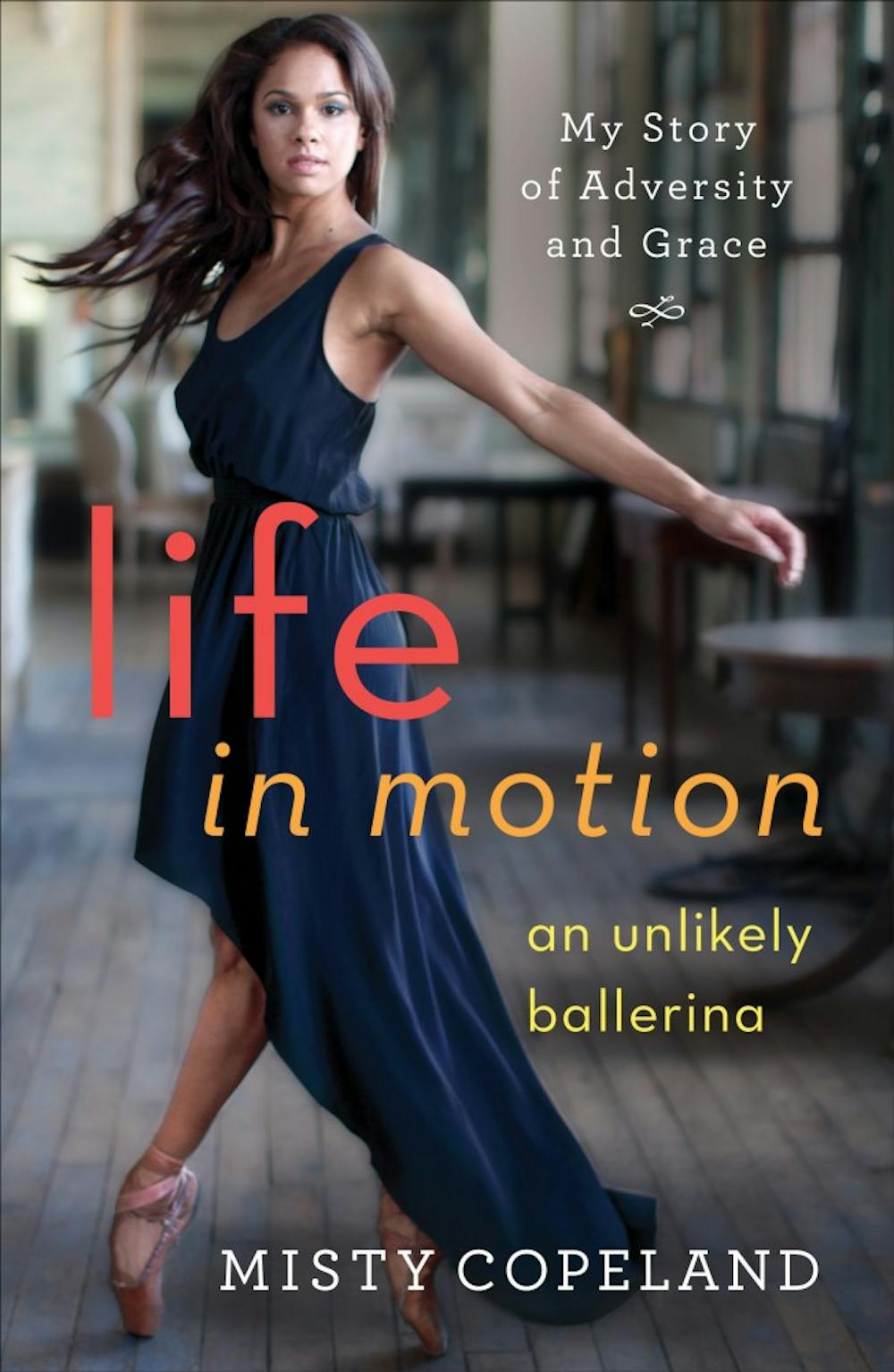
American Ballet Theatre’s principal dancer Misty Copeland in all her glorious curviness is breaking down how ballerinas’ bodies are stereotyped. Yet the body image barriers are not the only ones she’s battement-ing to the ground because she’s leaping over racial stereotypes as well. ABT is one of the most prestigious classical ballet companies in the world, and its 75-year existence, Copeland was made the very first African-American principal dancer in 2015. The idea that only white people and Asian people can do ballet is changing, and the change is just starting with Copeland. Thanks to her, little ballerinas of all body shapes and skin colors finally have the role model they should have always had.
I was blessed to grow up more than comfortably with two citizenships. My white skin and European descent allows me to be American and German simultaneously. I was born into my citizenships. But not everyone is that lucky. This is why next on my list of admirable and inspirational women I have Gabriela Castañeda. Following the deportation of her husband, Castañeda (once undocumented herself) began working with the Border Network for Human Rights (BNHR) teaching undocumented immigrants about the American rights they didn’t even know they had. She and the rest of BNHR work with Border Control to organize events like “Hugs Not Walls,” which allows separated families to reunite over the border for exactly three minutes.
In these times in which a person’s safety depends on hiding and secrecy, I look to people like Gabriela Castañeda and hope that although undocumented immigrants do not have the power that my two citizenships have granted me, that maybe at least there are other ways to be powerful.
Dora Totoian, Senior Reporter and Copy Editor (Malala Yousafzai, Emma González, Megan Jayne Crabbe, Andreea Diana Tănăsescu):
When Malala Yousafzai was 15, she was shot by the Taliban on her way home from school. She was targeted in her native Pakistan for wanting to guarantee girls their education. Since then, she has taken her activism to a greater stage and set up the Malala Fund, an organization dedicated to giving girls worldwide access to education. In the meantime, she’s also a college student just like us (albeit at Oxford), studying philosophy, politics and economics. She inspires me to try to not complain about all of the work that comes with school. Instead, her actions remind me to be grateful that I have the opportunity.
I lost someone to a mass shooting. My sadness because shootings keep happening has turned into anger — anger that so few people are similarly angry and care enough to take action to stop mass shootings. Four days after the Parkland shooting, I saw a glimmer of hope when I watched Emma González’s angry, heartfelt speech. She was speaking directly to me and for me. Her grief converted into activism to change gun laws is what the movement needs and inspires me to not give up hope for an America where people don’t have to worry about being shot whenever they leave their homes.
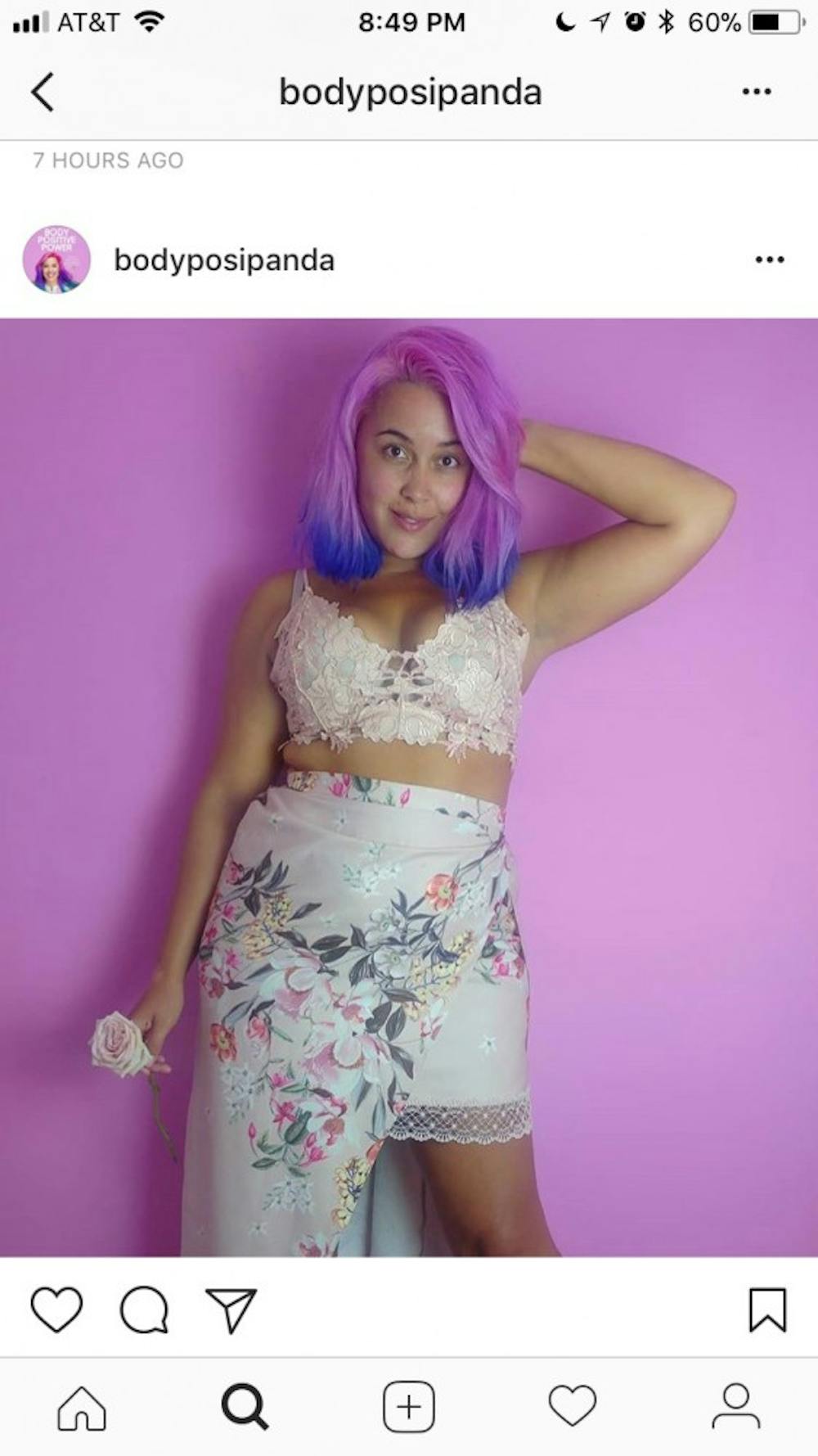
You know the explore page on Instagram that’s everyone’s go-to procrastination method? That’s where I first saw Megan Jayne Crabbe, better known as @bodyposipanda on Instagram. Her pastel-themed aesthetic and sometimes provocative posts will grab your eye — so that you can focus on accepting the message she preaches and lives: LOVE YOUR BODY, NO MATTER WHAT IT LOOKS LIKE. It might seem like a platitude, but so many of us fail that it’s why Crabbe devotes her entire platform to it. She combats the idea that “real women” look or act a certain way, dissects the complicated relationship many women (and people of all genders!) have with food and their bodies and constantly reaffirms that all bodies, no matter their size, color, gender, ability or age need to be loved.
A few years ago, on my regularly scheduled family trip to Romania, my aunt told me about La Blouse Roumaine and the work it does to celebrate the ie, a traditional Romanian blouse, and by extension, Romanian culture. The French artist Henri Matisse was inspired by the ie enough to paint it in 1940, and Andreea Diana Tănăsescu named this digital community as a nod to his work. La Blouse Roumaine promotes the ie and the artisans who craft it, fights back when high-profile designers use traditional Romanian designs without crediting them and links arms to celebrate traditional fashion and credit local artisans around the world. In an era when nationalist discourse dominates worldwide, it’s refreshing to see a group that recognizes celebrating your own culture and traditions doesn’t mean denigrating others.
Rachel Rippetoe, Editor in Chief (Madeleine L’Engle, Ava DuVernay and women of The Beacon):
I grew up reading all of the time. And I read with an ego, attempting books that didn’t make sense to me, that were too long and complicated, because I never wanted to admit that there was a stack of pages I couldn’t tackle. I read the first five pages of “For Whom the Bell Tolls” in third grade, and I started “Cat’s Cradle” at least three times before giving up. It became a problem for my reading development because instead of working my way up to more complex readings, I was skipping right to the top and not comprehending anything.
But Madeleine L’Engle saved me. She met me halfway.
The author, who wrote the A Wrinkle in Time series and the book A Ring of Endless Light (which was later adapted into a lackluster film with Mischa Barton), wrote children’s books in a way that was “childlike not childish.” She doesn’t condescend or underestimate the intelligence of her young readers. She asks they understand difficult scientific concepts while following along her wild fantasy rides into the great unknown. It was the first set of “smart” books I read that didn’t make me feel stupid. And that’s exactly why she’s a powerful force for young women. She wrote strong female protagonists who are facing complex challenges in the 1960s when this was uncommon in science fiction writing.
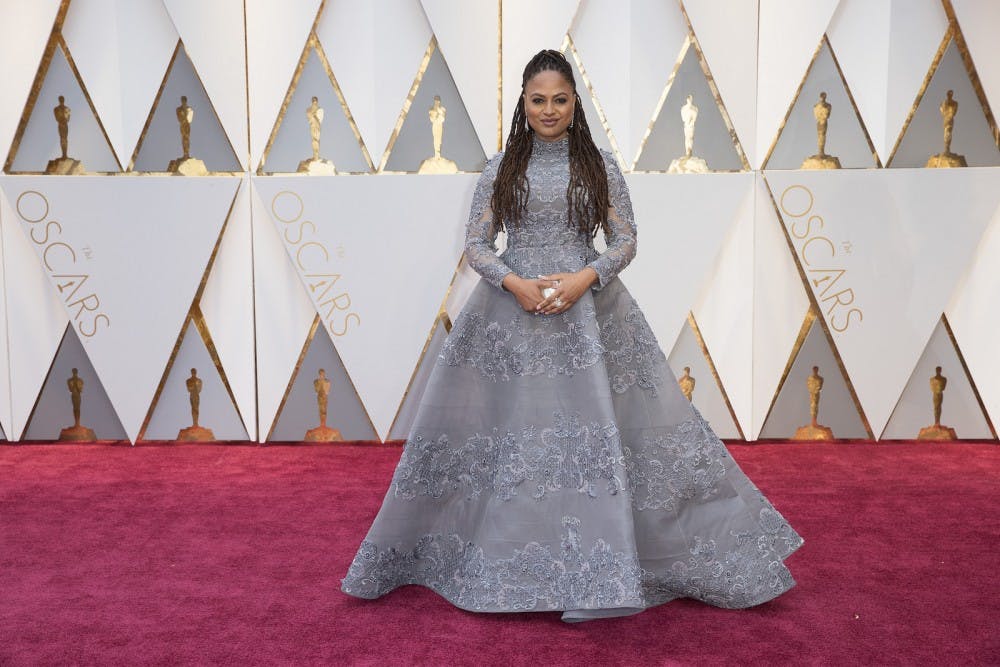
Actually, let’s get real. It’s still uncommon in science fiction writing, and that’s why Madeleine shares this spot on my list with director Ava DuVernay. DuVernay’s Disney adaption of “A Wrinkle in Time” will hit theaters on Friday, and it will feature the first black female protagonist in a fantasy film of this magnitude. DuVernay and L’Engle are similar in a lot of ways. Both of them found success later in their careers. L’Engle was going to give up writing altogether after her 40th birthday, when she had received yet another rejection letter from a publisher. But she came up with the idea for “A Wrinkle in Time” on a family camping trip later that year and now every nerdy-reader girl knows her name. DuVernay was the same age when she hit it big directing “Selma,” which was nominated for best picture at the 2014 Academy Awards.
DuVernay is now giving a rockstar #BlackGirlMagic rebirth to the book that truly made me a reader. And I’m so here for it. DuVernay is a fierce activist (watch her documentary film “13th” about black incarceration if you haven’t already), but she is also unapologetically personal and emotional. Read this New York Times story on the making of “A Wrinkle in Time” and try not to cry. I dare you.
Beacon women

In my four years of working for The Beacon, the editor-in-chief has always been a woman. The news and managing editor for the last three years has also been a woman. Our editorial board has been majority female for as long as I remember it. It’s not to say that men can’t do the job, but in an industry where only 37.7 percent of our news is credited to female journalists, wow, is it inspiring to look at our newsroom.
I’m so glad we have this legacy at UP, of women going off to work for The New York Times or Disney, of women writing difficult stories, stories of injustice, and ones that maybe just piss a lot of people off. The female voice is vibrant and smart and we hear it on this campus. Thank God.
The university is lucky, but I’m more lucky. No one pushes me to be better the way Beacon women do. No one shows me what hard work looks like the way Beacon women do. No one gives me ambition and the confidence to know I can get where I want to go. No one tears me down and brings me back up the same way Beacon women do.
We can admire women in Hollywood or corporate or women on the back covers of books and on the front pages of magazines. But don’t forget the women next to you, who carry you and take your bullshit, or don’t take your bullshit. I would be nothing without women: difficult women and tough women and “bitch boss” women and unapologetically vulnerable women.
Another female editor-in-chief is set for next year. I hope The Beacon is always a vehicle to help young women find their voice. Because nobody does it* better than Beacon women.
*”it” meaning everything
Agree? Disagree? Write in!



